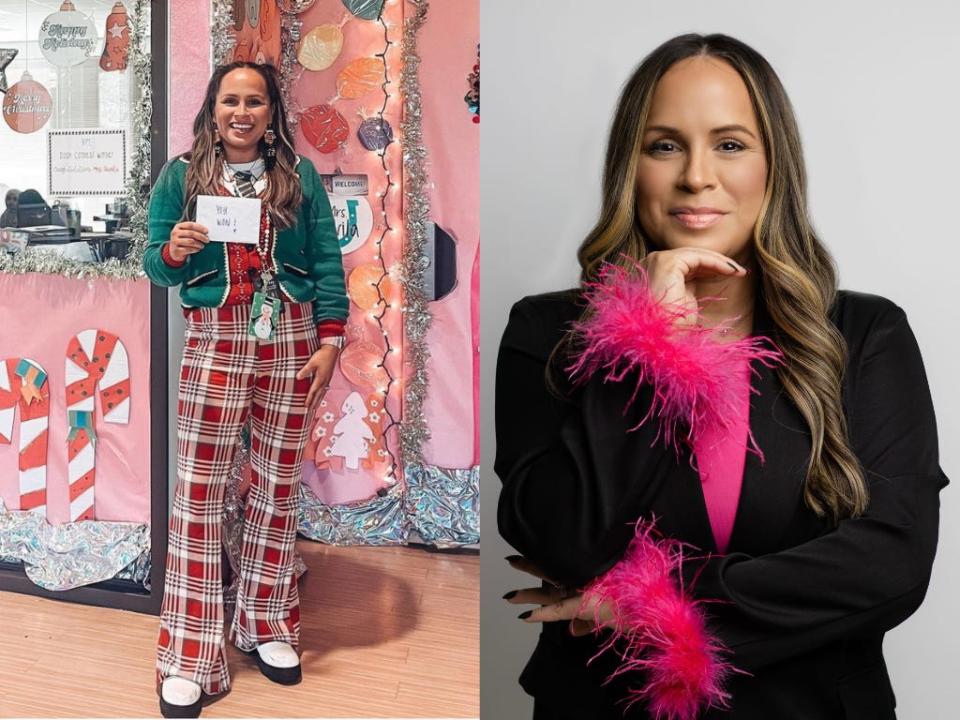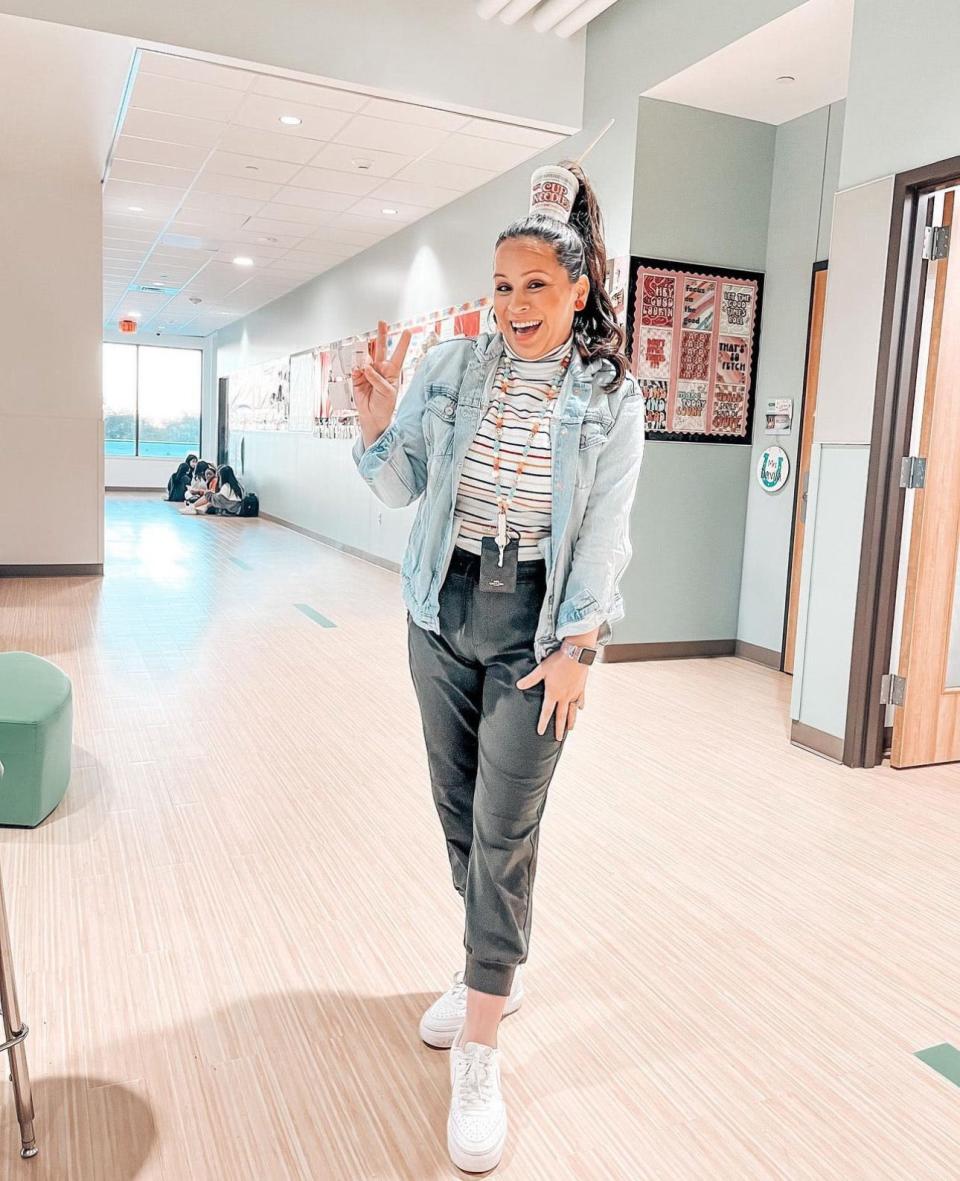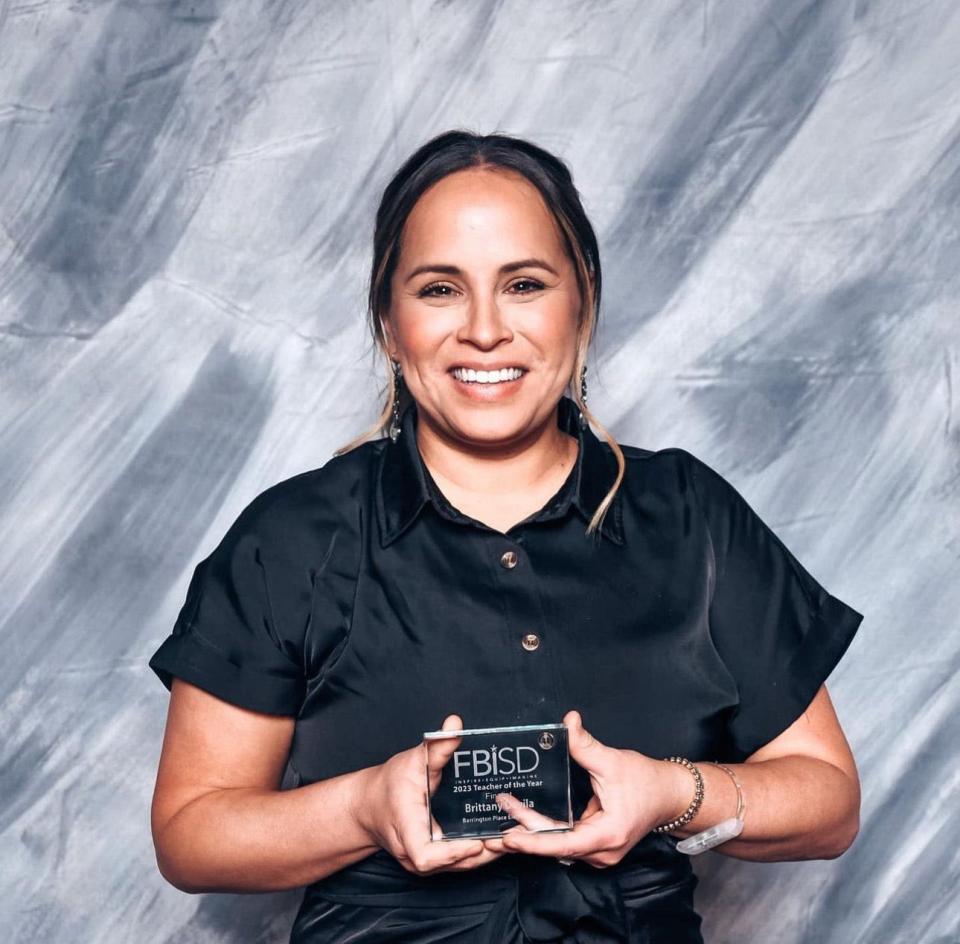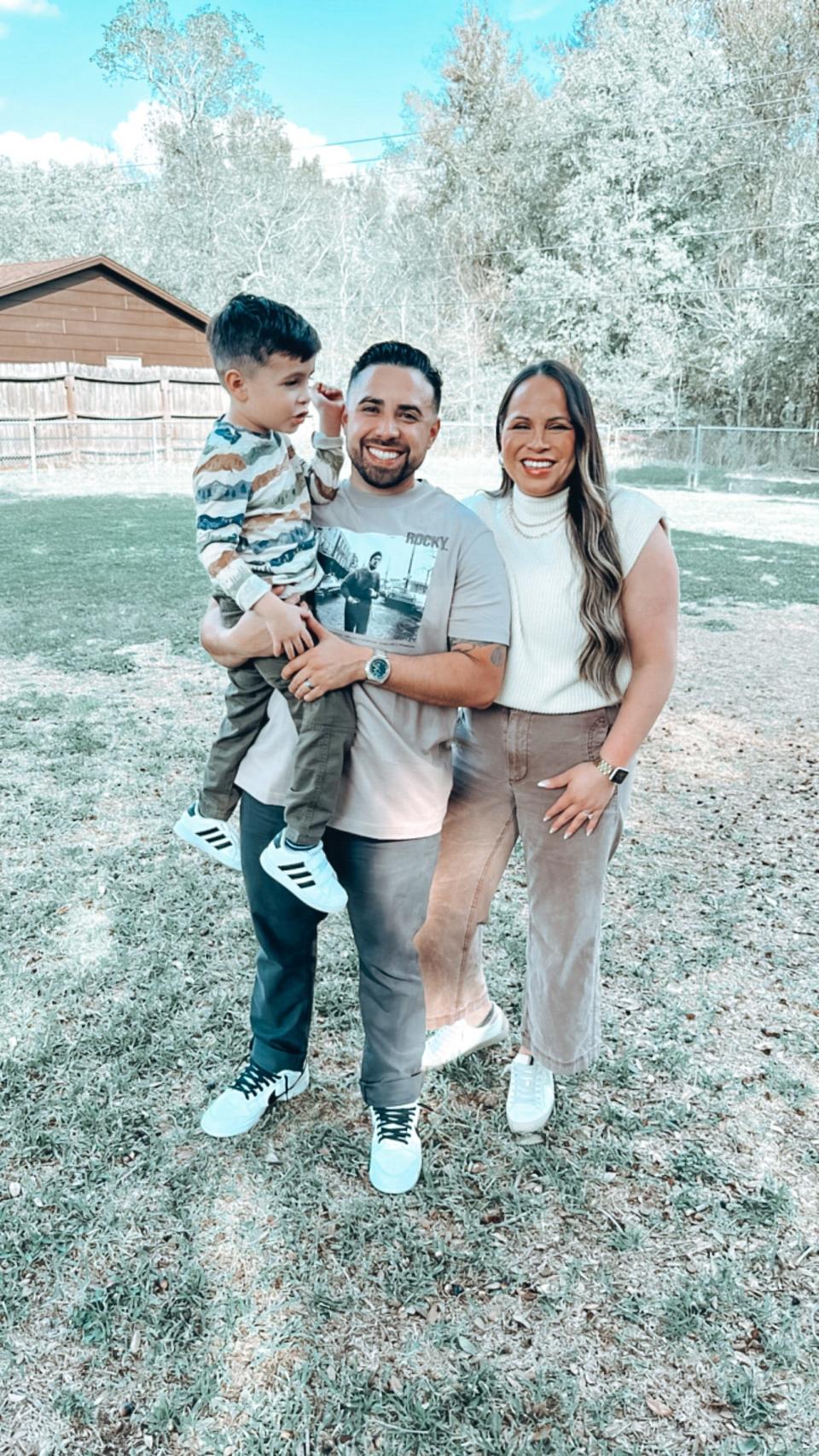I thought teaching was my dream job, but I became a virtual assistant. The flexible schedule is worth it.

Brittany Davila is a virtual assistant who previously worked as a teacher for seven years.
She quit teaching to spend more time with her son and pursue other goals.
She currently has two clients and appreciates the flexibility she has as a virtual assistant.
This as-told-to essay is based on a transcribed conversation with Brittany Davila, a 34-year-old executive assistant who was a teacher for seven years before quitting. The following has been edited for length and clarity.
My teaching journey started with someone believing in my capability and not allowing me to settle.
After I'd failed the teaching certification exam for the sixth time, I thought, "I'm not doing this anymore, it's not worth it." But the principal of a school I was tutoring at reached out and said she wanted to get me into the classroom. She put me on an emergency permit, which made me eligible to teach for a short time before I got my official certification.
When she told me that I'd be teaching third grade, I remember thinking, "It's time for me to finally fulfill a dream that I've longed for." And thankfully, I ended up passing the certification exam on my seventh try.
It was everything I expected and more. I got to decorate my classroom the way I'd always dreamed of and establish a learning environment that I'd been imagining and observing from other teachers.

I realized very quickly that I had a way with children who had more behavioral issues. I had one student who was in the foster care system and came to school with dirty clothes and no food and kept his head down. Three weeks into my class, his head was up, and he was getting fed.
Those were the interactions that kept me going and allowed me to serve at the level I desired.
Deciding to leave teaching
In my seventh year of teaching, my peers voted for me to be our school's representative for the district's Teacher of the Year award. I was chosen as one of six finalists.

I realized I'd hit all of the goals I'd set for myself, and I thought about leaving teaching. My son had been diagnosed with autism, and I wanted to spend more time with him. I was also a leader within my church and had other dreams I didn't have time to fulfill, such as writing a children's book about autism for my son.
Talking with my husband, I said, "I think I've come to the end of it." Just because you're good at something doesn't mean you have to keep doing it.
In April 2023, we decided that it was time for me to serve in a different capacity.
Being a virtual assistant was tougher than I expected
Transitioning out of teaching was a challenge because I'd thought it was something I could do for the rest of my life. Now I was realizing that maybe I had the ability to do something else — but figuring out what was a little bit challenging.
I looked online to see if there was something I could do while I was at home and came across a video about being a virtual assistant.
I applied with a platform called Belay. I had to submit a résumé, cover letter, and sample email to a client, answer a lot of short-answer questions, and create a video highlighting my strengths and weaknesses.
It was a big shift. As a teacher, I'd been talking mostly to eight-year-olds, so I didn't have to be so professional and so corporate. But now, I'm helping run a business, and there's a lot of pressure. I had to quickly learn the language my clients were speaking.
I watched YouTube videos and corporate TikTok influencers, tuned in to Belay webinars, and learned from other executive assistants as well as my clients. I've only been in this for nine months, so I've made mistakes, but it's about learning and realizing there's room for growth.
I find it a little tougher than being a teacher; I taught for long enough that it felt natural to me. Working as a virtual assistant does not come naturally to me.
I'd thought the job was mostly just scheduling and taking calls for clients, but there are so many other moving parts. I have to create systems and processes based on my clients and their personalities. I also edit and upload podcasts, make social media content and graphics, and help out however else is needed.
Sometimes I wish it were streamlined and I just had one specific job, but when I take a step back, I realize that I'm growing.
I make about 25% less each month than I was making as a teacher
I have two clients — one who's a life coach and another who works in finance.
Back when I only had one client, I was just working about three hours a day. But now that I have two, my day is pretty full: I wake up around 5:30 a.m. and work until about 7 a.m., then get my son ready for his therapy, and get back to Belay around 8 a.m. Then, I work until I go pick up my son from therapy around 3:30 p.m.
As a teacher, I was making around $60,000 a year, or about $5,000 a month. As a virtual assistant, I make between $21 and $30 an hour. With the income I bring in from both of my clients, I make about $3,700 a month — about 25% less than what I was making as a teacher.
Being a virtual assistant gives me flexibility
The benefits outweigh the financial considerations: I have the flexibility to be there for my son, to do ministry full-time in the church that my husband and I run, and to really pursue the other dreams I want for my life. I just finished my first children's book, and I'm working on another book about my battle with anxiety. My dream is to be a life coach and help people to fulfill their dreams.
Working in education, you can get boxed in. And if you leave teaching, you're seen as betraying the field. But in the corporate world, people leave all the time, and no one says anything — actually, people congratulate them.
When I left teaching, I knew some people thought, "Well, then you only did it for yourself." And that's not true. Purpose looks different for everybody, and it's a matter of doing what you're called to do. Sometimes, and in different seasons, that can look different.

If you went through an unconventional career change and would like to share your story, email Jane Zhang at janezhang@businessinsider.com.
Read the original article on Business Insider

 Yahoo Autos
Yahoo Autos 